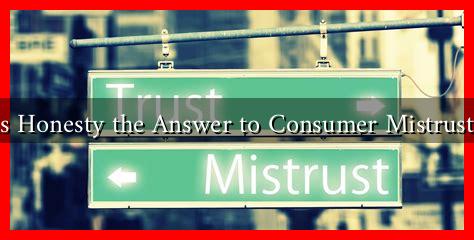-
Table of Contents
Is Honesty the Answer to Consumer Mistrust?
In an era where information is abundant yet often misleading, consumer mistrust has become a significant challenge for businesses across various sectors. With scandals, data breaches, and misleading advertising becoming commonplace, consumers are increasingly skeptical of brands and their intentions. This article explores whether honesty can serve as a remedy for consumer mistrust and how businesses can implement transparency to rebuild trust.
The Landscape of Consumer Mistrust
Consumer mistrust is not a new phenomenon, but it has been exacerbated by the digital age. According to a 2021 survey by Edelman, 61% of consumers stated that they would not buy from a brand they do not trust. This statistic highlights the critical need for businesses to address the root causes of mistrust.
Understanding the Causes of Mistrust
Several factors contribute to consumer mistrust, including:
- Data Privacy Concerns: With frequent data breaches and misuse of personal information, consumers are wary of how their data is handled.
- Misleading Advertising: Brands that exaggerate claims or use deceptive marketing tactics can quickly lose consumer trust.
- Lack of Transparency: When companies are not open about their practices, consumers may feel they have something to hide.
- Negative Reviews and Social Media: The power of social media means that negative experiences can spread rapidly, influencing public perception.
The Role of Honesty in Rebuilding Trust
Honesty can be a powerful tool for businesses looking to regain consumer trust. Here are some ways in which honesty can positively impact consumer relationships:
- Transparency in Communication: Brands that openly communicate their practices, policies, and challenges are more likely to earn consumer trust. For example, companies like Patagonia have built their reputation on transparency regarding their supply chain and environmental impact.
- Admitting Mistakes: Acknowledging errors and taking responsibility can enhance a brand’s credibility. For instance, when Boeing faced the 737 MAX crisis, their initial lack of transparency led to significant mistrust. However, their subsequent efforts to communicate openly about safety improvements have begun to restore some consumer confidence.
- Authentic Engagement: Brands that engage with consumers authentically, such as responding to feedback and addressing concerns, can foster a sense of community and trust.
Case Studies: Brands That Got It Right
Several brands have successfully navigated the waters of consumer mistrust through honesty and transparency:
- Everlane: This clothing retailer is known for its “Radical Transparency” policy, where they disclose the true cost of production for each item, including materials, labor, and markups. This approach has resonated with consumers who value ethical shopping.
- Buffer: The social media management platform openly shares its revenue, employee salaries, and even its mistakes. This level of transparency has built a loyal customer base that appreciates their honesty.
Statistics Supporting Honesty
Research supports the notion that honesty can lead to increased consumer trust:
- A study by Harvard Business Review found that companies with high trust levels outperform their competitors by 286% in terms of total return to shareholders.
- According to a 2020 Accenture report, 62% of consumers prefer to buy from brands that are transparent about their business practices.
Conclusion: The Path Forward
In conclusion, honesty is indeed a vital component in addressing consumer mistrust. By fostering transparency, admitting mistakes, and engaging authentically with consumers, brands can rebuild trust and create lasting relationships. As the marketplace continues to evolve, businesses that prioritize honesty will not only survive but thrive in an increasingly skeptical world. The key takeaway is clear: in a landscape rife with misinformation, honesty is not just the best policy; it is a strategic imperative for long-term success.

